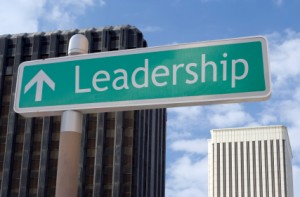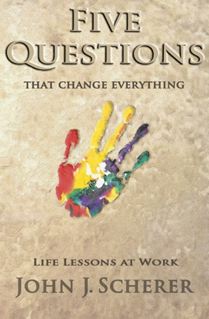 Being powerful in translating intentions into reality and sustaining them requires presence and adaptability in the face of life’s circumstances – circumstances that can change every moment. Where can we turn for tools to support ourselves?
The United States military has long taught our special ops teams and fighter pilots a thought process called the OODA Loop. These teams function in relatively small units who have large assignments with very limited time and resources. They train incessantly and plan their missions in incredible detail. Yet, no plan survives its collision with reality and conditions in the field often differ from those on the planning table.
Being powerful in translating intentions into reality and sustaining them requires presence and adaptability in the face of life’s circumstances – circumstances that can change every moment. Where can we turn for tools to support ourselves?
The United States military has long taught our special ops teams and fighter pilots a thought process called the OODA Loop. These teams function in relatively small units who have large assignments with very limited time and resources. They train incessantly and plan their missions in incredible detail. Yet, no plan survives its collision with reality and conditions in the field often differ from those on the planning table.
Adherence to the original plan would sometimes mean immediate capture or death and certain failure. Given their commitment, failure is not an option and "all or nothing" is often the choice. They must be able to make sometimes dramatic adjustments to achieve mission objectives and extract themselves with minimal to no casualties.
The OODA Loop thought process is an excellent antidote to holding onto the way it was supposed to be, the resources they were supposed to have, and the unfairness of the situation. The acronym simply means:
1) Observe the actual “ground truth” – the way that it is and the way that it isn’t rather than how it was supposed to be. 2) Orient to the actual situation, the observable roadblocks and potholes, the unknowns, and the resources available. Consider the options and strategies that are available. 3) Decide on a path and how long you can go before reorientation is required. 4) Act on your plan 5) Immediately start the process over
In Organizational Development circles the Action Research people would be most comfortable with this thought process.
In your world, how can you apply this simple, clear process to return yourself to working on your purpose and priorities? How can you use to deal with the "Tyranny of Push Content" we addressed in our last post? How can this OODA loop concept benefit your leadership development?

 Are you overwhelmed with the "tyranny" of emails, newsletters, Facebook and LinkedIn updates, tweets, and phone messages coming at you by the hour? Do you have a feeling of guilt that somehow you are accountable for responding to all of them, even though you didn’t ask for most of them in the first place? Is the e-stack in your inbox getting deeper and deeper? Do you feel like a slave to your Blackberry or iPhone? Are you spending longer hours responding and giving yourself less quiet time?
Virtually everyone we work with is concerned about this issue, not only for themselves but also for those who work with and for them. If everyone is sending and responding to the stuff shoved at them all day, when is there time to think and be proactive and who is doing the work?
Are you overwhelmed with the "tyranny" of emails, newsletters, Facebook and LinkedIn updates, tweets, and phone messages coming at you by the hour? Do you have a feeling of guilt that somehow you are accountable for responding to all of them, even though you didn’t ask for most of them in the first place? Is the e-stack in your inbox getting deeper and deeper? Do you feel like a slave to your Blackberry or iPhone? Are you spending longer hours responding and giving yourself less quiet time?
Virtually everyone we work with is concerned about this issue, not only for themselves but also for those who work with and for them. If everyone is sending and responding to the stuff shoved at them all day, when is there time to think and be proactive and who is doing the work? hey would have time to be successful at responding to everything.
hey would have time to be successful at responding to everything. It seems to us almost everywhere we look since January 1st there is a new, refreshed attitude, (although we do recognize many are still struggling and we offer our compassion and empathy to those still in the midst of major issues). We see companies "cleaning their closets," making final changes to their rosters and negotiating to buy or merge. We observe people leaving, (or getting ready to leave), their current employment, and starting new jobs. Overall there seems to be a general shift to action mode with a "let’s get to it" attitude.
It seems to us almost everywhere we look since January 1st there is a new, refreshed attitude, (although we do recognize many are still struggling and we offer our compassion and empathy to those still in the midst of major issues). We see companies "cleaning their closets," making final changes to their rosters and negotiating to buy or merge. We observe people leaving, (or getting ready to leave), their current employment, and starting new jobs. Overall there seems to be a general shift to action mode with a "let’s get to it" attitude. 1) Take some time to clearly articulate "what I want from you." Make sure you have reflected before the conversation and are very clear about your priorities. Producing a verbal laundry list is likely to be received with overwhelm so be specific.
2) Take time to listen to "what you want from me." It's critical to be open, curious and receptive. You can't fairly expect to successfully re-contract if you aren't able to really hear what people want from you.
3) Discussion - make sure you have allotted enough uninterrupted time for some thorough discussion.
4) Counter offers - this is critical. Be ready and willing to negotiate.
5) Agreement - the goal is to end the conversation with mutual understanding and acceptance.
1) Take some time to clearly articulate "what I want from you." Make sure you have reflected before the conversation and are very clear about your priorities. Producing a verbal laundry list is likely to be received with overwhelm so be specific.
2) Take time to listen to "what you want from me." It's critical to be open, curious and receptive. You can't fairly expect to successfully re-contract if you aren't able to really hear what people want from you.
3) Discussion - make sure you have allotted enough uninterrupted time for some thorough discussion.
4) Counter offers - this is critical. Be ready and willing to negotiate.
5) Agreement - the goal is to end the conversation with mutual understanding and acceptance. It’s the time of year when many of us conduct annual rituals that may include everything from strategic planning sessions for business to making New Year’s resolutions or setting Bold Goals for 2010 and beyond. We’ve found any such process to be much harder to do when we haven’t completed and let go of the past. It's very difficult, (impossible?), to really move forward when we are carting the past along with us. The process of letting go can include changing your attitude and perceptions about what the economy did to you, to digging very deep and letting go of some of the childhood stuff that shapes your life.
On the fun end of the spectrum, we have for many years put flip chart paper all over our walls when we have a New Year’s Eve party with a simple question on each, such as “What did I start and not complete?” or “What did I accomplish that I haven’t been acknowledged for?” or “What did I screw up that I didn’t get caught for?” Guests write on the charts all evening with colored markers and sometimes get even more creative with a touch of artistic display as well. On a number of occasions we have taken them all down at midnight and symbolically burned them.
It’s the time of year when many of us conduct annual rituals that may include everything from strategic planning sessions for business to making New Year’s resolutions or setting Bold Goals for 2010 and beyond. We’ve found any such process to be much harder to do when we haven’t completed and let go of the past. It's very difficult, (impossible?), to really move forward when we are carting the past along with us. The process of letting go can include changing your attitude and perceptions about what the economy did to you, to digging very deep and letting go of some of the childhood stuff that shapes your life.
On the fun end of the spectrum, we have for many years put flip chart paper all over our walls when we have a New Year’s Eve party with a simple question on each, such as “What did I start and not complete?” or “What did I accomplish that I haven’t been acknowledged for?” or “What did I screw up that I didn’t get caught for?” Guests write on the charts all evening with colored markers and sometimes get even more creative with a touch of artistic display as well. On a number of occasions we have taken them all down at midnight and symbolically burned them.
 This week on Thursday the US will celebrate Thanksgiving. We are getting close to the end of the year and many have already begun to reflect on all that has happened. It’s been an extraordinary year on many levels -- politically and financially our country has gone through a lot of change. Many people have also gone through a lot personally in areas including their finances, employment and home ownership.
As we come to Thanksgiving, and look back on this extraordinary year, we at 2130 Partners want to say “thank you” and express our gratitude. First to our team, that we fondly call “the collaborative.” We are grateful to have amazing, talented, and committed people to work with, collaborate with and have fun with.
This week on Thursday the US will celebrate Thanksgiving. We are getting close to the end of the year and many have already begun to reflect on all that has happened. It’s been an extraordinary year on many levels -- politically and financially our country has gone through a lot of change. Many people have also gone through a lot personally in areas including their finances, employment and home ownership.
As we come to Thanksgiving, and look back on this extraordinary year, we at 2130 Partners want to say “thank you” and express our gratitude. First to our team, that we fondly call “the collaborative.” We are grateful to have amazing, talented, and committed people to work with, collaborate with and have fun with. Our culture has an expectation of the picture perfect “Norman Rockwell” holiday experience. Family gathered around a beautifully set table, a lovely home-cooked holiday meal. Yet for many, many people, the holidays are one of the most stressful times of the year. With the state of the economy and many people’s business and/or personal finances, the holidays may be even more stressful than usual this year.
On a professional level, if you are a business owner, entrepreneur or executive your business may still be suffering from the state of the economy. At this time of year when employees are hoping for bonuses, parties or some other sort of acknowledgment, what will you be able to do this year to keep up morale? It may not be realistic from a budgetary standpoint to do much, but with all the stress and challenges, doing nothing just reinforces the sense that “things aren’t right” yet. It’s difficult for a team to perform at their peak when extremely stressed. Finding a way to reassure and boost morale is an important leadership move.
Our culture has an expectation of the picture perfect “Norman Rockwell” holiday experience. Family gathered around a beautifully set table, a lovely home-cooked holiday meal. Yet for many, many people, the holidays are one of the most stressful times of the year. With the state of the economy and many people’s business and/or personal finances, the holidays may be even more stressful than usual this year.
On a professional level, if you are a business owner, entrepreneur or executive your business may still be suffering from the state of the economy. At this time of year when employees are hoping for bonuses, parties or some other sort of acknowledgment, what will you be able to do this year to keep up morale? It may not be realistic from a budgetary standpoint to do much, but with all the stress and challenges, doing nothing just reinforces the sense that “things aren’t right” yet. It’s difficult for a team to perform at their peak when extremely stressed. Finding a way to reassure and boost morale is an important leadership move.
 The term “comfort zone” has become a popular way to describe how we are feeling about various activities we are taking part in – “that pushed me way out of my comfort zone,” or “that was not in my comfort zone,” are pretty common phrases these days.
When we talk about our “comfort zone” what we are talking about is our personal orbit, our range of personal activities. Each of us has a daily routine, a weekly routine and perhaps even a monthly or yearly routine. Generally speaking we are creatures of habit and we develop comfort zones we like, and of course, feel comfortable in.
The term “comfort zone” has become a popular way to describe how we are feeling about various activities we are taking part in – “that pushed me way out of my comfort zone,” or “that was not in my comfort zone,” are pretty common phrases these days.
When we talk about our “comfort zone” what we are talking about is our personal orbit, our range of personal activities. Each of us has a daily routine, a weekly routine and perhaps even a monthly or yearly routine. Generally speaking we are creatures of habit and we develop comfort zones we like, and of course, feel comfortable in. important phenomenon to understand. It works for us in critical ways. For example, it helps keep our body temperatures stable. As we know, we all have a set-point for body temperature that is on average 98.6 degrees. The homeostasis in our bodies helps insure that when our temperature fluctuates, it comes back to this comfortable set point. The downside is that when we challenge ourselves psychologically and emotionally in various ways, there can be a “homeostatic back lash,” and a strong pull to go back to our existing comfort zone until we have solidly established a new set point.
important phenomenon to understand. It works for us in critical ways. For example, it helps keep our body temperatures stable. As we know, we all have a set-point for body temperature that is on average 98.6 degrees. The homeostasis in our bodies helps insure that when our temperature fluctuates, it comes back to this comfortable set point. The downside is that when we challenge ourselves psychologically and emotionally in various ways, there can be a “homeostatic back lash,” and a strong pull to go back to our existing comfort zone until we have solidly established a new set point. This morning in a one-to-one with a client, I was once again reminded how much and how easily even the seemingly most successful people can be derailed from handling the roadblocks and potholes they encounter in life.
From my perspective, what stops each of us is fear. It is unconsciously and instantaneously triggered when our Survival Brain connects something in the present with an experience stored in our mental File Cabinet from early childhood. I've heard those incidents described in various ways.
This morning in a one-to-one with a client, I was once again reminded how much and how easily even the seemingly most successful people can be derailed from handling the roadblocks and potholes they encounter in life.
From my perspective, what stops each of us is fear. It is unconsciously and instantaneously triggered when our Survival Brain connects something in the present with an experience stored in our mental File Cabinet from early childhood. I've heard those incidents described in various ways.  of the discussion in
of the discussion in  One of the expressions we hear often from our clients these days, in reference to themselves and/or their team members, is overwhelm. Whether they say it or not, we definitely see it and also its consequence - inaction-- quite regularly. Another, (and perhaps more precise), word that describes what we see is 'unraveled.'
"Overwhelm" is actually a fairly general word, a sort of "catch all" phrase. So what are people really saying when they use it? It could mean they are drowning, engulfed, rendered totally ineffective by decisive defeat or, at the least, impaired severely in spirit and health. If they are unraveled, we could also say they have fallen apart. Regardless of the precise wording, when people are in this state there seems to be no access to freedom, creativity, leadership, productive action, or even good health.
One of the expressions we hear often from our clients these days, in reference to themselves and/or their team members, is overwhelm. Whether they say it or not, we definitely see it and also its consequence - inaction-- quite regularly. Another, (and perhaps more precise), word that describes what we see is 'unraveled.'
"Overwhelm" is actually a fairly general word, a sort of "catch all" phrase. So what are people really saying when they use it? It could mean they are drowning, engulfed, rendered totally ineffective by decisive defeat or, at the least, impaired severely in spirit and health. If they are unraveled, we could also say they have fallen apart. Regardless of the precise wording, when people are in this state there seems to be no access to freedom, creativity, leadership, productive action, or even good health. connect you with the people around you, and restore your spirit.
connect you with the people around you, and restore your spirit. As many have written, (including us), these are extraordinary times. The thing is, they are likely more extraordinary than most of us realize. During today's
As many have written, (including us), these are extraordinary times. The thing is, they are likely more extraordinary than most of us realize. During today's  We can go back through the history of the earth by drilling into and examining the ice cores in Antarctica. In doing this, scientists have discovered that these changes in earth cycles are really intense and they are also brief, so the transition we are currently experiencing is unlikely to go on for generation after generation. In fact, it will likely be only one generation. So we as a civilization must respond now. The choices each of us are making today will determine our collective future.
We can go back through the history of the earth by drilling into and examining the ice cores in Antarctica. In doing this, scientists have discovered that these changes in earth cycles are really intense and they are also brief, so the transition we are currently experiencing is unlikely to go on for generation after generation. In fact, it will likely be only one generation. So we as a civilization must respond now. The choices each of us are making today will determine our collective future. If you are not a believer in reviewing ancient history, how about the results of some recent scientific studies? Between the years 1998 and 2000, 400 studies were designed to identify the optimum amount of violent competition in a species. They looked at numerous varieties of species and the findings were consistent - the optimal amount of competition is "zero." They found that cooperation among species is what insures their survival. So the only way we can make successfully make this transition is to examine and rid ourselves of our notions of 'Darwinian competition' and learn to cooperate and help each other. This means at every level and on a global scale - not just how do I cooperate with my next door neighbors and others in business? But how do nations cooperate with other nations?
If you are not a believer in reviewing ancient history, how about the results of some recent scientific studies? Between the years 1998 and 2000, 400 studies were designed to identify the optimum amount of violent competition in a species. They looked at numerous varieties of species and the findings were consistent - the optimal amount of competition is "zero." They found that cooperation among species is what insures their survival. So the only way we can make successfully make this transition is to examine and rid ourselves of our notions of 'Darwinian competition' and learn to cooperate and help each other. This means at every level and on a global scale - not just how do I cooperate with my next door neighbors and others in business? But how do nations cooperate with other nations? So ask yourself - who have you helped today? Did you come up with a great cooperative joint venture with another company that will create a "win win" for both businesses? Did you help a colleague get an important project approved or completed? Did you make time to help a neighbor, a friend, or someone in one of your communities? Did you create just a little peace by letting someone get on the freeway more easily or make a safe lane change? It will take a cumulative effect of many cooperative acts great and small, but we can do this if we do it together from a mindset of cooperation instead of a mindset of competition.
So ask yourself - who have you helped today? Did you come up with a great cooperative joint venture with another company that will create a "win win" for both businesses? Did you help a colleague get an important project approved or completed? Did you make time to help a neighbor, a friend, or someone in one of your communities? Did you create just a little peace by letting someone get on the freeway more easily or make a safe lane change? It will take a cumulative effect of many cooperative acts great and small, but we can do this if we do it together from a mindset of cooperation instead of a mindset of competition. Blind Adventurer," give an hour and a half presentation on his experiences, motivations, lessons learned, and extraordinary worldview, was just that. Erik has reached the summit of the seven most challenging mountains in the world, including Everest, and successfully returned.
Erik's views are particularly applicable in navigating the
Blind Adventurer," give an hour and a half presentation on his experiences, motivations, lessons learned, and extraordinary worldview, was just that. Erik has reached the summit of the seven most challenging mountains in the world, including Everest, and successfully returned.
Erik's views are particularly applicable in navigating the  venues in which we find ourselves, summits that express the essence of who we really are.
venues in which we find ourselves, summits that express the essence of who we really are. t part of leadership is how we pass it on to others."
t part of leadership is how we pass it on to others." paradigm of leadership for a very long time. It is all about having an authoritative leader, who knows most, (if not all), the answers and loyal troops who follow this leader. Hallmarks of this style include motivation through authority and fear. It also encourages the troops to follow the rules and policies and “fall in line,” versus being creative and innovative. To a large extent this style creates dependency of the troops on the leaders, and rewards status quo. It is not a particularly efficient model of operation.
So what does ‘leadership’ mean now? Clearly that is a complicated question. At 2130, we believe to understand that question you need to start with
"who are leaders now?" How do you define them? From our perspective, we believe that everyone can and should be a leader -- that leadership is not dependent on having a particular job title or rank in an organization. We’ll let
paradigm of leadership for a very long time. It is all about having an authoritative leader, who knows most, (if not all), the answers and loyal troops who follow this leader. Hallmarks of this style include motivation through authority and fear. It also encourages the troops to follow the rules and policies and “fall in line,” versus being creative and innovative. To a large extent this style creates dependency of the troops on the leaders, and rewards status quo. It is not a particularly efficient model of operation.
So what does ‘leadership’ mean now? Clearly that is a complicated question. At 2130, we believe to understand that question you need to start with
"who are leaders now?" How do you define them? From our perspective, we believe that everyone can and should be a leader -- that leadership is not dependent on having a particular job title or rank in an organization. We’ll let 
 era and is now rapidly being displaced. In Mike's description, entitlement means “I deserve this job, and to be taken care of by my employer.” On a broader level it connects to expectations about "what I should receive" as a result of position, hard work, loyalty, birth rite, etc. To us, this shift is at the heart of the fear that dominates our lives and airwaves in the USA. Whether from loss of a job, sharply reduced financial reserves, loss of perceived political power, or safety from foreign threats, the sense of “I have a right to this” is being significantly threatened.
era and is now rapidly being displaced. In Mike's description, entitlement means “I deserve this job, and to be taken care of by my employer.” On a broader level it connects to expectations about "what I should receive" as a result of position, hard work, loyalty, birth rite, etc. To us, this shift is at the heart of the fear that dominates our lives and airwaves in the USA. Whether from loss of a job, sharply reduced financial reserves, loss of perceived political power, or safety from foreign threats, the sense of “I have a right to this” is being significantly threatened. 